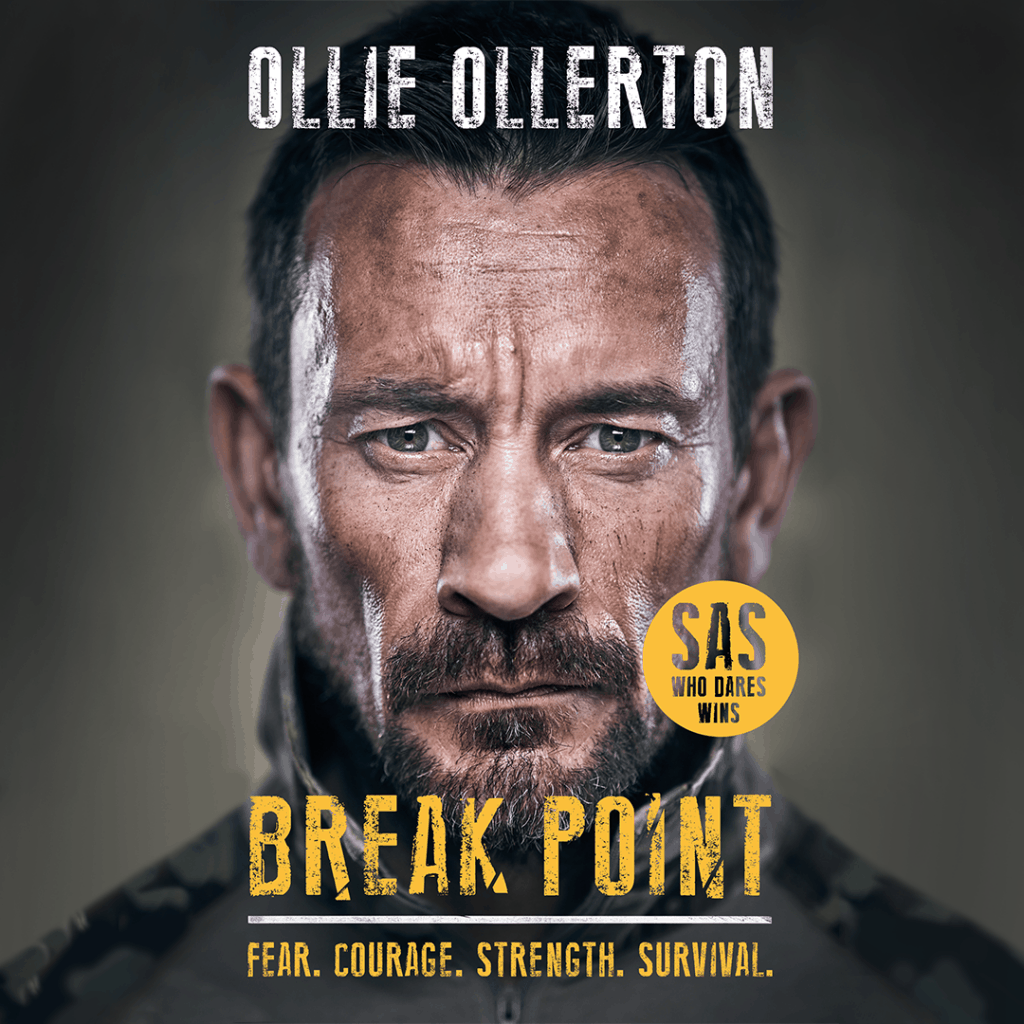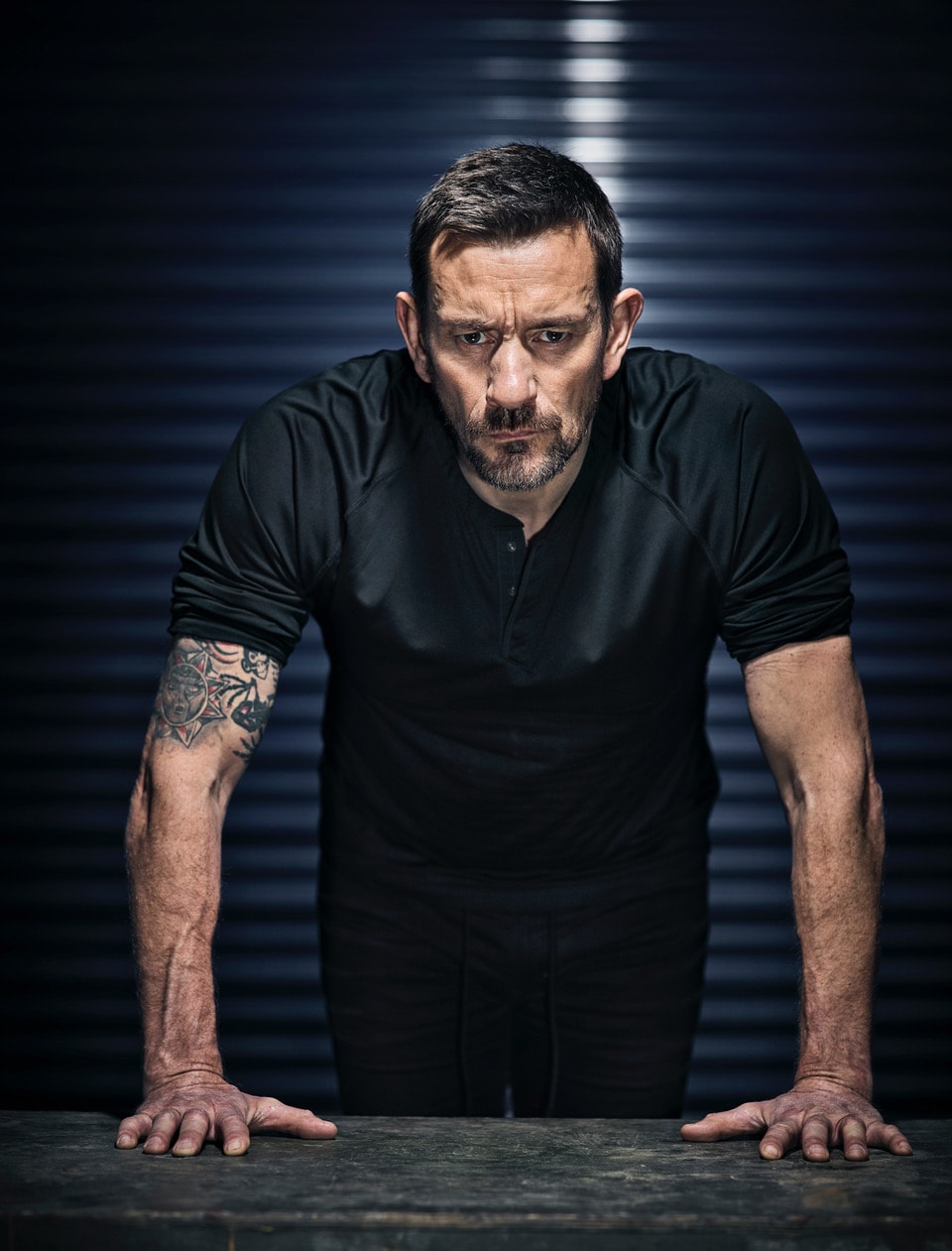
Matthew ‘Ollie’ Ollerton is a former Special Forces soldier who you might know best from his role as a member of the Directing Staff on Channel 4’s hit show SAS: Who Dares Wins.
Ollie’s military career began at the age of 18 when he joined the Royal Marine Commandos and toured operationally in Northern Ireland and in Iraq for Operation Desert Storm. He subsequently spent six years in the Special Boat Service rising to team leader, before working in Iraq as a private security contractor.
Despite all his experience in battle, the scariest moment he faced wasn’t at war, but early on in his life. At just ten-years-old Ollie was mauled by a 50kg chimpanzee at a circus in his home town of Burton-On-Trent. He nearly lost his life during that horrific incident and it ended up shaping Ollie’s attitude during his formative years.
In his searing new book Break Point he tells his own fascinating life story, including the aforementioned attack, his nonconformist mindset, the time he spent the military and what led to him creating his corporate training company Break-Point, and getting a role on the Channel 4 show. We spoke with Ollie Ollerton recently about all of the above.
The MALESTROM: Hi Ollie, well firstly your book Break Point is fantastic, incredibly honest, you must be really pleased with it. Maybe to kick off, explain to us exactly what a break point is?
Ollie Ollerton: Well, when I was 10 years old, I was sat under a chimpanzee thinking to myself ‘I’m going to die’, and of course, back then I didn’t think ‘oh this is break point’, this is obviously on reflection. But basically, it was at that point that I had to make a decision. And, that decision was to make things worse for any chance to make things better. That was me lying under that chimp, and that day I made a decision, I decided to live.
That for me typifies the whole thing about break point, you have to make a short term sacrifice of further discomfort for the long term benefit. But, the thing is people will spend their lives sat under the chimp, and they won’t do anything. They will happily spend their lives with that discomfort because they’re scared to step into any further discomfort in the short term, to make their life better in the long term.
I don’t own the theory behind break point, it’s wrapped within everyone’s DNA, who we are as people. I’m by no means a psychologist, I learned it the hard way, through life experience, but, there’s a bit of a conflict within the human race.
We’re meant to evolve and experience new things, but what’s holding us back, is a survival blueprint. We want to keep on doing what we’ve done every day in the past because regardless of how that’s made us feel, it’s kept us alive until today.
For the majority of people, apart from a small percentage, we’re living in a repeat cycle of yesterday. And that doesn’t give a s**t if we’re happy or sad, if it’s a good situation or a bad situation, all it knows is that we’re alive. So, whenever it comes to going outside of that repeat cycle, when it’s something new, whether that’s for the greater good or happiness, or whatever you want to call it, alarm bells go off and your mind does everything possible not to do that something new.
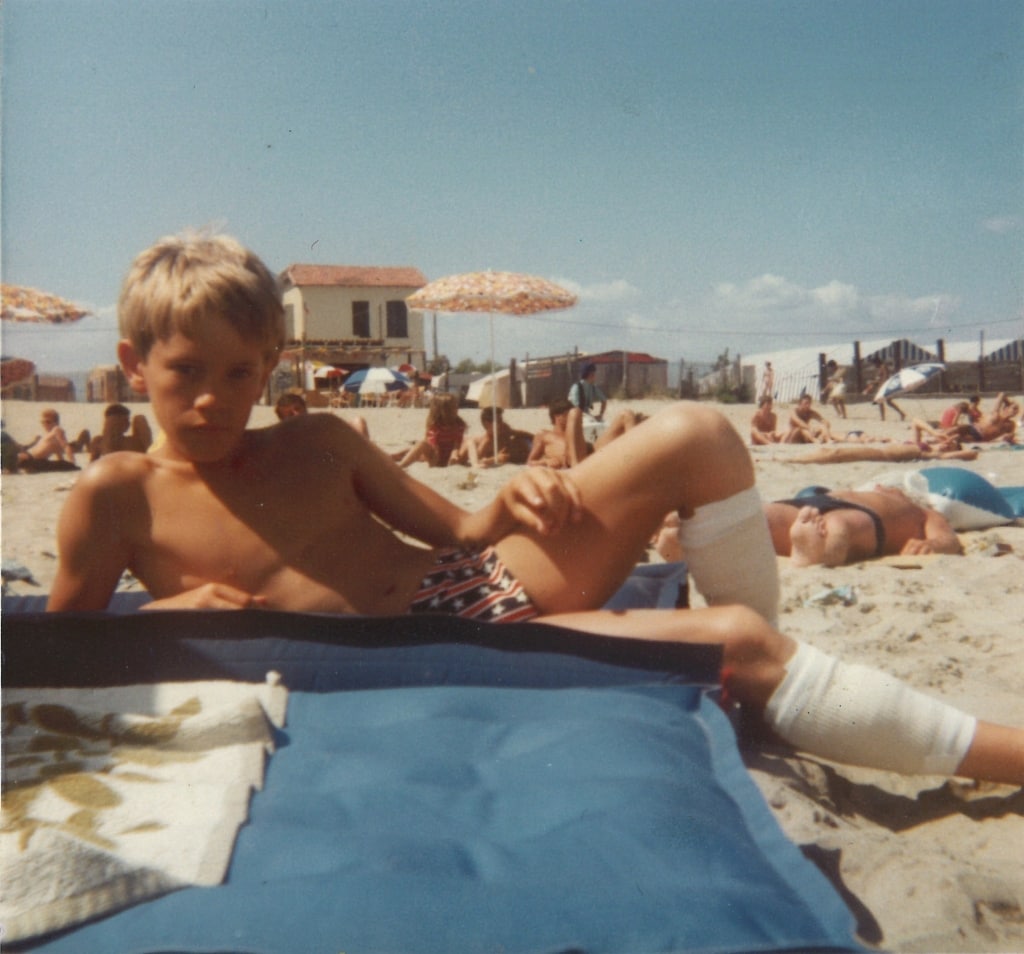
TM: You mentioned that incident with the chimpanzee, but, there are so many crazy things that happened in your life, be it military exercises and what have you. But still, nothing came close to that feeling of being close to death that you experienced then as a young child? Did it shape you?
OO: Well, it taught me from a very young age, although you’re not conscious of it at the time, it just changes the pattern and direction of your life. But, it taught me at a very young age that regardless of your situation, you have choices.
There are always choices, don’t accept the status quo. In life, I wasn’t prepared to do what everyone was doing in the mainstream. If everyone was walking forward, I’d be looking for the left and right to see what was there. I’ve always questioned everything… as humans again, from an early age – it’s why a lot of kids get into trouble, why I got into a lot of trouble – we’re trying to find our purpose in life.
That’s why it’s so important for kids to get involved in some sort of hobbies, whatever it might be, but they have to have something that allows that energy to be directed in a positive manner. Otherwise, like was the case with me, I went wayward and life found a purpose for me (laughs) and focussed my energy in a negative way.
TM: Well, you realised school life wasn’t for you. Is seems you were quite a naughty child, was that a product of what had happened?
OO: Yeah, the chimp’s got a lot to answer for, bless him or her, I didn’t hang around to find out. It’s like chasing the dragon, I was always pushing the bar, even later on in life, going to Baghdad, I was always trying to push it, push it, push it beyond… looking for that adrenaline rush. And I do take that back to when I was young, being close to death, sat under that chimp, I was going to die.
TM: So you think that’s why you actively sought that life of danger with the military?
OO: Yeah, absolutely. The military allowed me to push that bar, but in more of a controlled manner. When I’ve analysed this looking back, people just assume it would be the opposite way around.
But, in the military, the mayhem was controlled, but outside the military, the mayhem was not controlled whatsoever. It was just a freefall because I was just in control of the non-control if that makes any sense? When I look back now that I’ve found balance in my life, I just think ‘what a f**king idiot’. Back then, I honestly didn’t think I’d come back from Baghdad.
Very early in the days of getting there, I was attacked, by the militia, outnumbered, it was a horrible moment, where for the first time in my life, I’d always had support, the brotherhood, naval gunfire, and at that moment I had nothing. That realisation in that moment, having to deal with that was surreal. And then having the responsibility of the peoples lives in front of me, etc, etc.
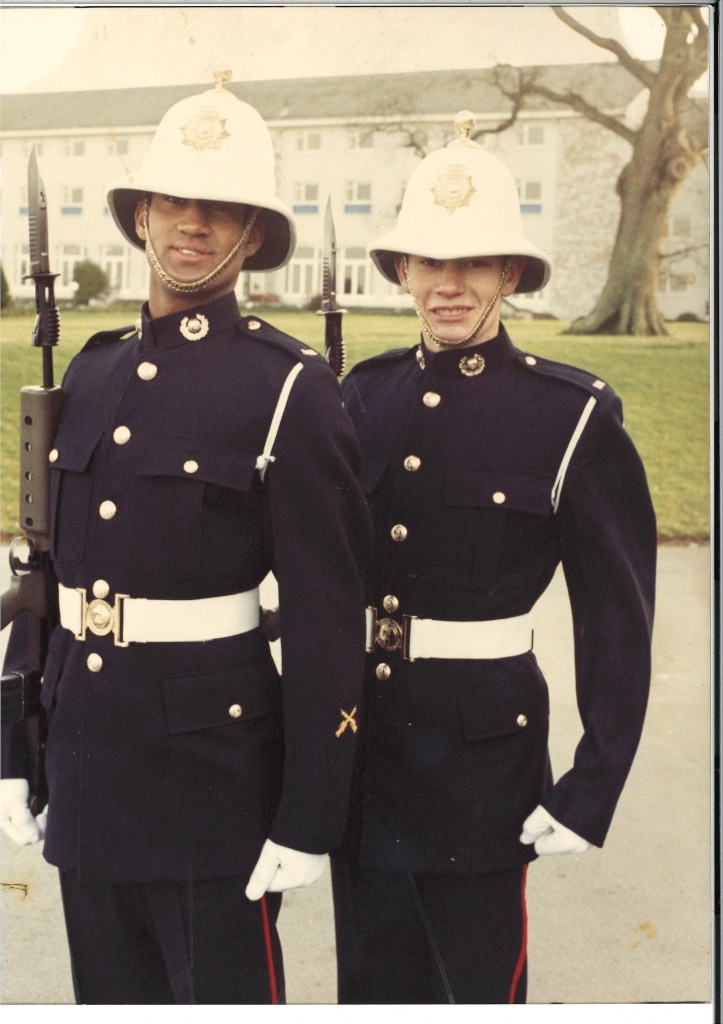
TM: That particular time in Baghdad seemed absolutely mental? The bomb going off not long after you arrived and other crazy incidents, you talk in the book about being immune to the chaos at that time?
OO: That time in Baghdad was like the wild west, money being thrown into it, mercenaries from all over the world, just gathering in this country where it was just lawless. Drinking and all sorts going on, it was just mental time.
TM: Not wanting to spoil anything for people before they read the book, but, that drive from Jordan to Baghdad, the fact you visualised the attack and it actually happened…
OO: That moment really made me reflect back on my life. I analysed all the things that I’d really wanted to achieve in my life and they all entailed the same thing. It was sat there dreaming, visualising, putting myself where I wanted to be and it played out. Going through the SBS selection process and getting kicked off once for supposedly beating up the Welsh farmer and then doing it all again, that was due to visualising it.
For me the dream was still there, it was about the end result it didn’t matter about all the s**t in the middle. And I do believe that moment in Baghdad, it was so surreal, the timings, every element about that attack, it was almost for me like an epiphany, it’s like, this stuff works [visualisation], be careful with it. And since then, I’ve used it and used it to my advantage.
I believe everyone’s got that gift. But, the thing is people don’t understand how it works. We are geared more negatively than we are positively, because we’re always looking for what’s going to go wrong, not what’s going to go right. People are trapped in that whole world of negativity and that affects their life and their outcomes.
TM: What got you into that?
OO: I came back from Iraq, my girlfriend at the time, she was a psychologist, which helped save me a fortune. I was advised to go and see a psychologist and it was a spiritual psychologist. I wanted to go somewhere where they weren’t going to feed me full of drugs and go ‘on your way’ sort of thing.
So, I wasn’t prepared to take any kind of band-aid that was going to cause me more problems. I wanted to see someone that had a different approach, so that’s when I saw this psychologist and everything he said to me just made sense.
The complexity, the way our minds work, he made it understandable. That set me off on that route, I started doing meditations, I had to find a way to clear all the mind chatter, we’ve all got it.
All that meditation is, it’s managing to get rid of all the stuff that doesn’t matter and focus on the stuff that really does. And, unless you learn to do that there’s too much white noise going on for you to actually achieve anything.
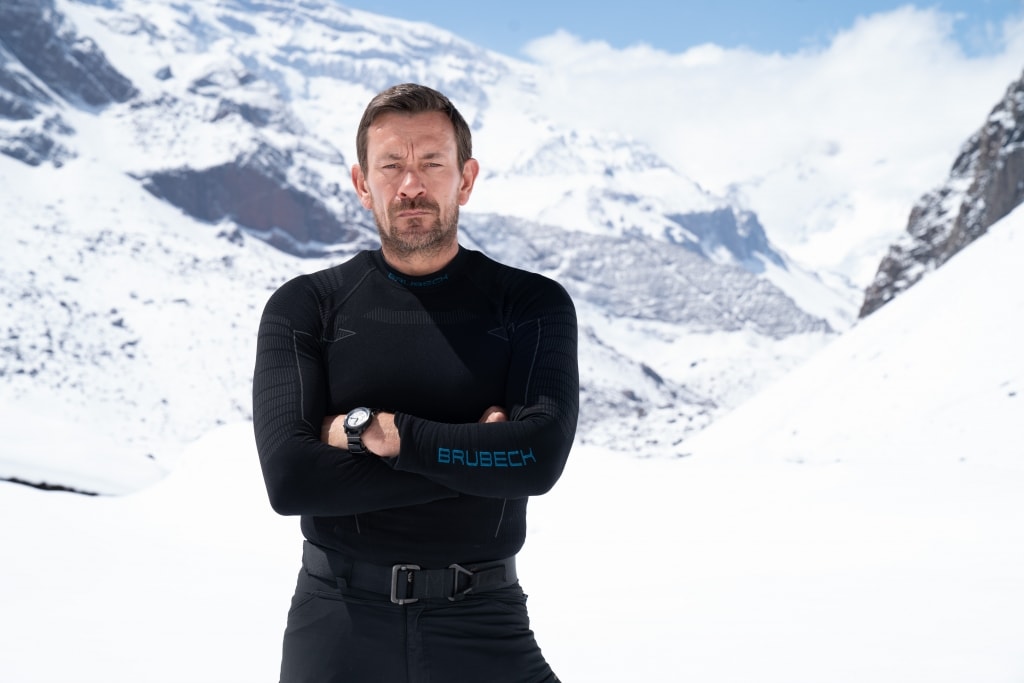
TM: In the book, you talk about how you previously used alcohol as a means to cope, how much did that affect you?
OO: Yeah it was constant. On the days that I wasn’t drinking, I was looking at when would be the next time. Drink dominated so much of my life, and it does for a lot of people. It just helped, it numbed me. That’s what it does, it stops that noise, it stops that chatter. It was brilliant, as soon as you start having any sort of negative feelings, just have a drink and it’ll be fine and it was, it was!
But, it’s a dead end street. If drink was your mate, the relationship wouldn’t last for too long would it? Plus, it costs you a fortune, makes you look like a dick and makes you do things that you’re not proud of (laughs). To be honest, I do now have a drink, but only because I learned to control it, and the only way to do that was to totally sever it from life. That was the best thing I ever did, a conscious effort to control the thing that was controlling me and beat it, was such a win-win for my mental state.
But, at that time it was all the time, especially the Baghdad days, I had a lot going on. I had separated from my wife, I’d left my kid in the UK. All the stuff in Baghdad, the people getting killed, I was getting attacked, and drink was the one consistent thing in my life, and then obviously with the drugs as well, the prescriptions, valium etc, it was just a nasty cocktail.
TM: One thing you’ve always had is positivity, where did that come from?
OO: I don’t know, I take it for granted, it’s only when friends have said, “oh you’ve always been positive”, I will find a silver lining with anything. And, I don’t think that’s a bad thing to do, because, at the end of the day when it comes to mental health, our lives are not easy, no one’s life is easy.
You’re going to get disappointed, you’re going to get people who die around you, you’re going to have people that cheat on you, you’re going to have people that let you down, and life is an obstacle course, of hardship. So you’ve got to learn from these things and I feel like I’ve definitely learned from all the things that have happened in my life.
We tend to box things up, turn the key and hope that it’s gone and forgotten, but it doesn’t work that way. The thing I’ve learned to do, and I’ve always done it, is, process it and accept it and take the silver lining and there’s always a silver lining. It’s just something that I’ve always done and I don’t know where it necessarily comes from, perhaps from the chimp attack and surviving that, I’m not sure, but it’s certainly ingrained in my DNA.
TM: Before we talk about Who Dares Wins, can we touch on your own SBS selection process and what you went through? Having to prove so many doubters wrong…
OO: Well that’s exactly it, when you’re so passionate about something and focussed and determined that’s your dream and someone doubting that is someone p***ing on your bonfire. And I’ve had that all the way through my career.
A lot of the time – and I’ve never really reflected on it until more recently – a lot of that is the self-doubt of the person that’s mocking you, it’s about the s**t that they’re carrying, not the s**t that you’re carrying. They doubt themselves more than they doubt you. That’s always given me a fire in my belly to complete something, to find the motivation – we all have to find something that motivates us beyond our desires and dreams – again it comes down to a silver lining.
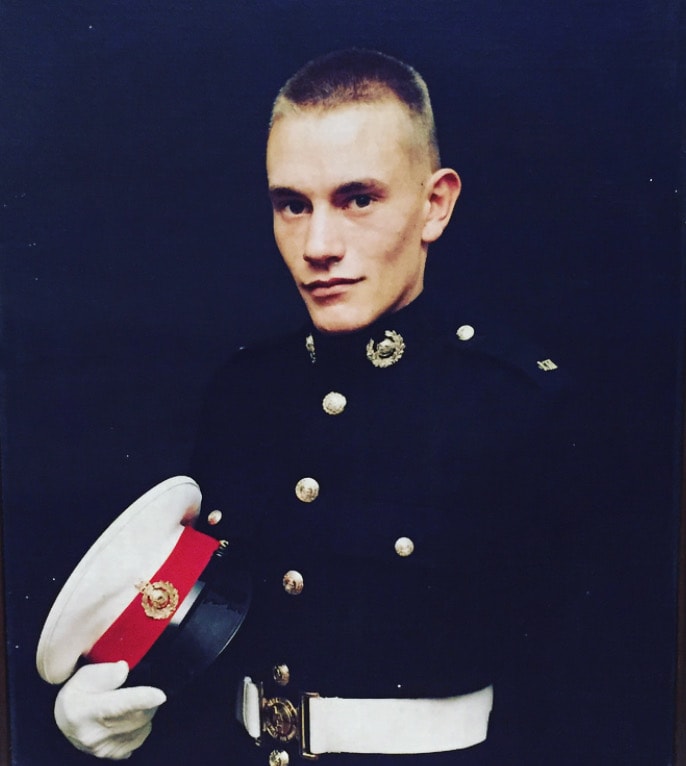
A lot of people in that situation would take that and that would cripple them, someone’s doubt will cripple them, they’ll never achieve what they want to achieve. It’s the fight or flight scenario, if you get that and turn it into something good for you then great, turn negativity into your power, and it works. There have been so many dreams and desires crushed because people just listen to what others are saying.
TM: In many ways, that’s the case on Who Dares Wins, people experience a transformation, and have to leave their egos at the door…
OO: 100% mate. With selection, with the programme, with the military, with any kind of hardship in anyone’s life, the ego is nowhere to be seen when things get tough. You’re having to make decisions based on emotions, which basically means, everything you say, think or do becomes organic.
You don’t have time to plan the preferred outcome as you do in your comfort zone, where you can design the perfect outcome when you’re at ease with yourself. But when you’re not at ease and under severe hardship, you don’t have that luxury, so with your reactions everything is organic and that delivers a character that some people have never seen.
That’s what the show does really well, you basically then see this person that you’ve never seen before, that’s what happens to the candidates. Sure, there’s a lot of people that have had some hardships in their lives, and it can be quite scary and a bitter pill to swallow, but it’s a life-changing one.
When it’s raw and it’s raw emotion, you see yourself in your true light, it makes you understand who you are.
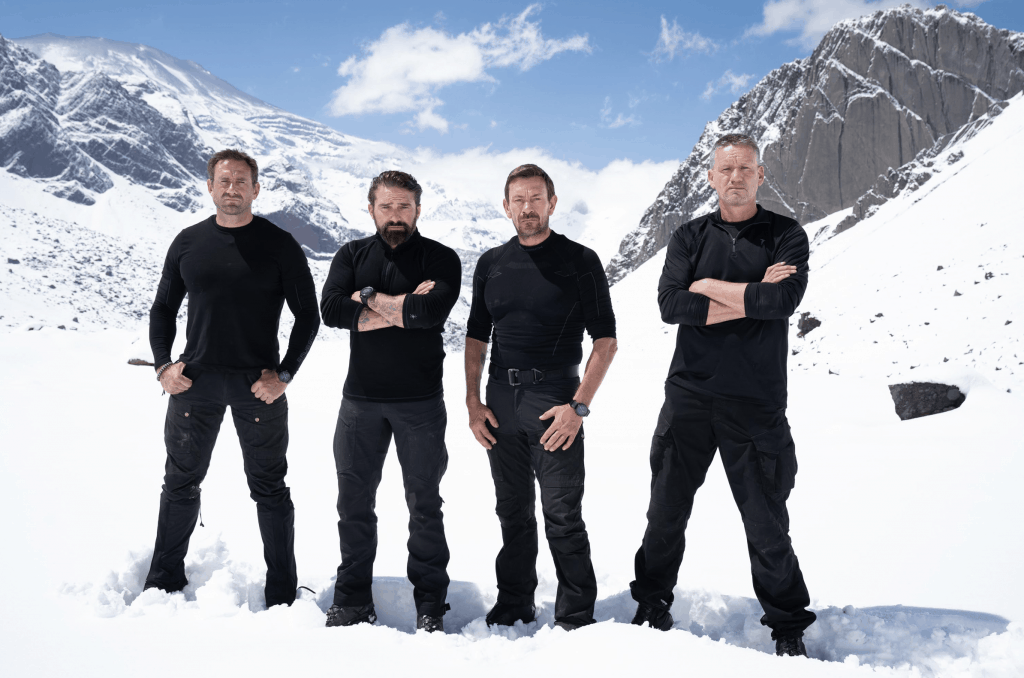
TM: From reading the book, it’s clear you’re not safe from danger yourself when working on the show? There was the rope incident and others…
OO: (Laughs) Series 1 was okay, Series 2 I nearly fell out of the helicopter from 60 feet because of the rope, Series 3 I nearly drowned and Series 4 the rock came flying past me and just missed me that would have taken my head off.
TM: Is there much competition between you and the other DS’s?
OO: I wouldn’t say competition, no, there’s a lot of experience between us and there’s a lot of ideas and things that maybe some are more passionate about than others. but, at the end of the day, nothing great comes from anything that happens easily.
There’s some conflict about ideas and conflict about doing certain things, how it should look and all that kind of thing, but what happens is we get through it as a team and we come up with something that’s brilliant and is certainly well received.
It’s not about what happens on the journey, the mission is always successful and regardless of how we feel, negatively or positively about something, we always come up with the goods. At the end of the day, the mission is so important to all of us, we’ll push any kind of personal differences aside to make sure it works.
TM: Who’s not to be messed with? Billy lost it the other week with Sam Thompson in the celeb version of the show (laughs)…
OO: (Laughs) Oh I mean Billy is an intimidating character, just by his sheer nature. I wouldn’t like to be on the receiving end of Billy, but yeah all the lads can handle themselves of course. But, I don’t follow that line, I’m my own character. We’ve all got very different characters and that’s what a Special Forces team is all about.
You never get one team where everyone is driven in the same direction because that just wouldn’t work. Different characters have different strengths and weaknesses and I think that comes across well on the show. We’re a team that comes from the same background but we all have different personalities.
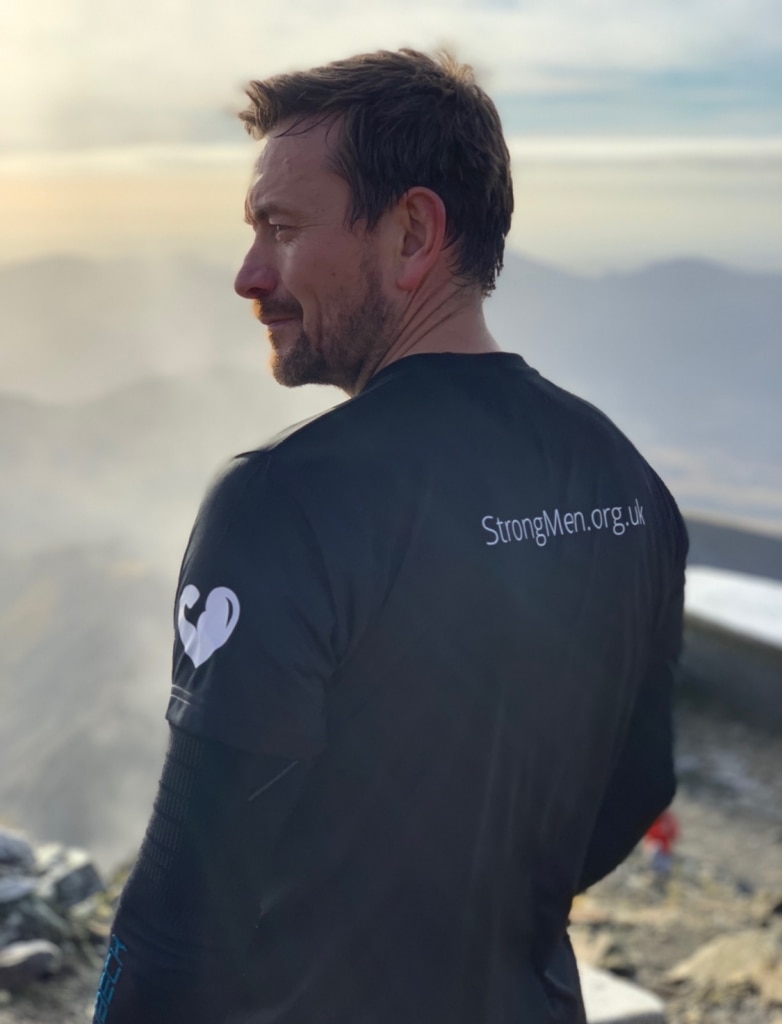
TM: And you’ve used those Special Forces philosophies in your Break Point business. Can you tell us a bit about that?
OO: Yeah, growth lies in discomfort and although that might sound a bit harsh and scare some people off, it doesn’t mean that we have to throw them off a cliff to make them feel that.
Just by putting people into alien situations that they haven’t been in before and probably never would be in and getting back to that situation of allowing that emotion to be raw, allowing that character to come forth and not be hindered by ego and comfort zones and that’s when you really feel growth.
That’s what Break Point does. At the end of the day the events, and it’s the same for the show, abseiling off a cliff, diving into cold water, it’s not about that, it’s about the state of mind that we put people in. When people are in that state of mind that’s when true growth happens. On the courses we run, we give people the opportunity to strengthen their minds and bodies, and to make the most out of every moment.
TM: And it’s about changing peoples lives, genuinely helping, with Break Point and the show?
OO: Absolutely, I’ve never been more content in any job until this point. There’s great satisfaction that can be found from helping other people. And that’s quite obvious really, that’s how we are as a species.
It’s innate within all of us to try and help the next person and yes, it’s very fulfilling to see the breakthroughs that people have. It’s the best job I could ever wish for!
TM: We like to finish with a few words of wisdom from your life, anything that springs to mind?
OO: I think what I’ve learned over the years is, you have to define your purpose. Don’t go through life trying to fit into the system, we’re humans, we’re not meant to be packaged and put into a box and put on a shelf to be programmed for the system.
If you’re not happy in life that’s a message, you’ve got to move on, you’ve got to find a purpose and only you will know what that is. It’s really understanding what makes you happy, what makes you tick and doing things that make you passionate about your values.
What makes us is rarely chosen, a lot of the things that happen we wouldn’t choose to do, but it’s going through those experiences that make us who we are.
Break Point by Ollie Ollerton is out to buy today.
Click the banner to share on Facebook



